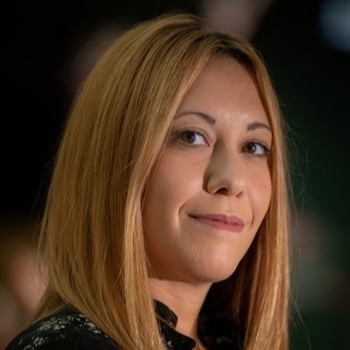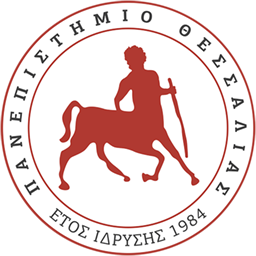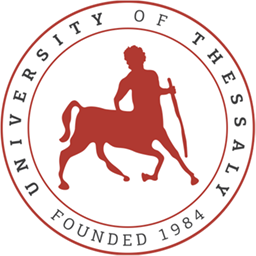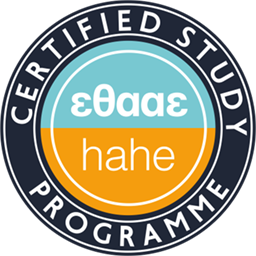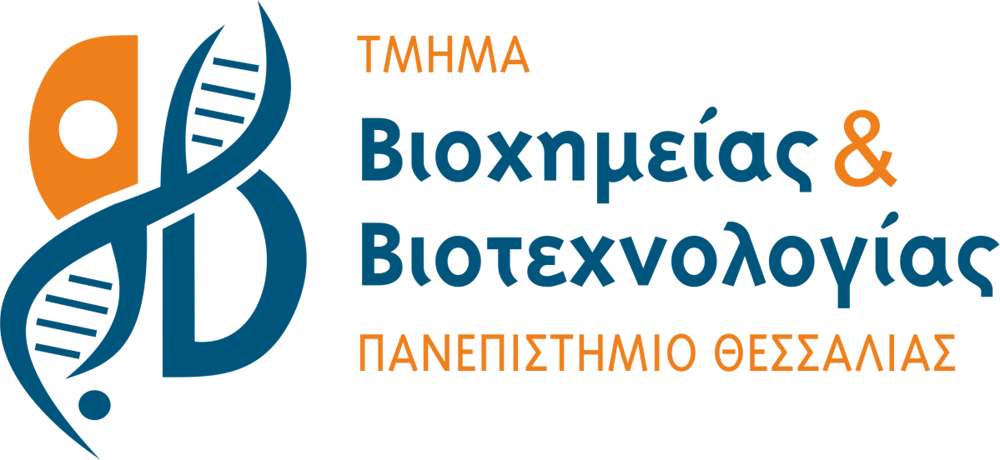Basic Principles in Biochemistry

Theory: 4 hours/week | Practicals: 3 hours/week | ECTS Units: 5
Learning outcomes
The course introduces the structures of biological molecules and how they interact with each other to form biologically functional macromolecules and cellular structures. The methodology of studying their structure and action as well as their detection, isolation and purification from tissues or mixtures of heterologous expression are also analysed.
The aim of this course is to introduce students to the basic concepts of biochemistry, incorporating, where possible, recent scientific discoveries.
Upon completion of the course, students are expected to:
- know and be able to describe the structure of the biomolecules that make up a cell
- know the principles of the procedures for isolating, purifying and studying the structure and action of biomolecules
Syllabus
- Living systems and the limited variety of atoms and molecules.
- The four main classes of biomolecules: proteins (biomolecules with many different uses), nucleic acids (information-carrying molecules in the cell), lipids (fuel storage and barrier function) and carbohydrates (fuel and information molecules).
- Membranes define the boundaries of the cell and perform cellular functions.
- Water, weak bonds and the birth of order out of chaos.
- Thermal movements promote biological interactions.
- Biochemical interactions take place in an aqueous solution.
- Patient interactions are important biochemical properties.
- Hydrophobic molecules form aggregates
- pH is an important parameter of biological systems.
- Construction of proteins from a set of 20 amino acids.
- Amino acids contain a wide range of functional groups.
- Primary structure: Amino acids are linked by peptide bonds to form polypeptide chains.
- Secondary structure: Polypeptide chains can be folded into regular structures.
- Tertiary structure: Water-soluble proteins fold into solid structures.
- Quaternary structures: Multiple polypeptide chains can form a single protein.
- The amino acid sequence of a protein determines its three-dimensional structure.
- Monosaccharides are the simplest carbohydrates.
- Monosaccharides are linked together to form complex carbohydrates (sucrose, maltose, lactose, cellulose, glycogen, starch structures).
- Carbohydrates are linked to proteins to form glycoproteins and proteoglycans.
- Lectins are special proteins that bind carbohydrates.
- Fatty acids are a key source of energy.
- Triacylglycerols are the storage form of fatty acids.
- Common types of membrane lipids (phospholipids, glycolipids steroids).
- Membrane structure and function (fluid mosaic model).
- Membrane fluidity is controlled by fatty acid composition and cholesterol content.
- Structure and function of channels, pumps and receptors in the cell membrane.
- The proteome is the functional representation of the genome.
- The purification of proteins is the first step in understanding their function.
- Isolation of proteins from cells. Cell membrane lysis.
- Purification of proteins based on differences in solubility, differences in size, differences in their charge and on their binding affinity for other molecules.
- Separation of proteins by electrophoresis in a gel. Labelling and appearance of these in the gel.
- Enzyme assay as a means of evaluating the effectiveness of an enzyme purification protocol.
- Qualitative and quantitative assessment of the effectiveness of a protein purification protocol. Evaluation of the performance and the level of purification of the protein.
- Centrifugation as a method for the separation of proteins and subcellular organelles.
- Density gradient centrifugation as a method for separation of a receptor-binding complex. The example of estrogen receptor.
- Production of antibodies against proteins. Monoclonal-polyclonal antibodies, useful tools for isolation and characterisation of protein functionality. The example of the estrogen receptor.
- Use of antibodies for protein isolation.
- Immunological techniques are used to purify and characterise proteins. Immunoprecipitation, Enzyme-linked immunosorbent assay for the qualitative and quantitative determination of proteins.
- Western blot, method for the detection of proteins after electrophoresis.
- Spectrophotometry, method for the determination of protein mass, protein identity and the amino acid sequence of proteins.
- Determination of the primary structure of proteins. Proteolytic degradation of proteins. Edman degradation.
- Determination of the secondary, tertiary and quaternary structure of proteins (principles of cyclic dichroism spectroscopy, DLS, NMR, X-ray crystallography and electron microscopy).
- Peptide synthesis.
Laboratory Exercises
- Aminoacid titration.
- Effect of pH on protein solubility.
- Effect of ionic strength on protein solubility.
- Spectrophotometric determination of proteins.
- Determination of carbohydrates.
Student performance evaluation
Performance is assessed on the basis of the written examination in the theoretical part of the course during the examination period. The final grade for the course is the result of the grade for the theoretical part (80%) and the laboratory part (20%) of the course.
Suggested bibliography
- Biochemistry Fundamentals (2015). J.L. Tymoczko, J.M. Berg, and L. Stryer, 3rd edition, Broken Hill Publishers.
- Biochemistry (2021). Raymond S. Ochs., 1st ed.
- Lehninger’s Fundamentals of Biochemistry (2017). D.L. Nelson and M.M. Cox, 7th edition, Broken Hill Publishers.
- Biochemistry Fundamentals at the Molecular Level (2018). D. Voet, J.G. Voet and C.W. Pratt, 5th edition, Giola Publishers.
Teaching Material / E-class
Lecturers
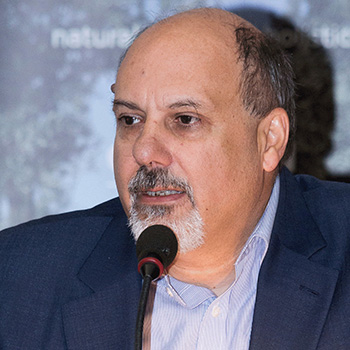
Demetres Leonidas D.
(Course Coordinator)
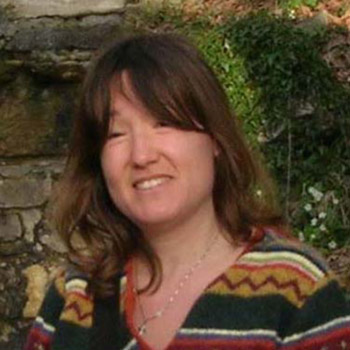
Anna Maria Psarra
